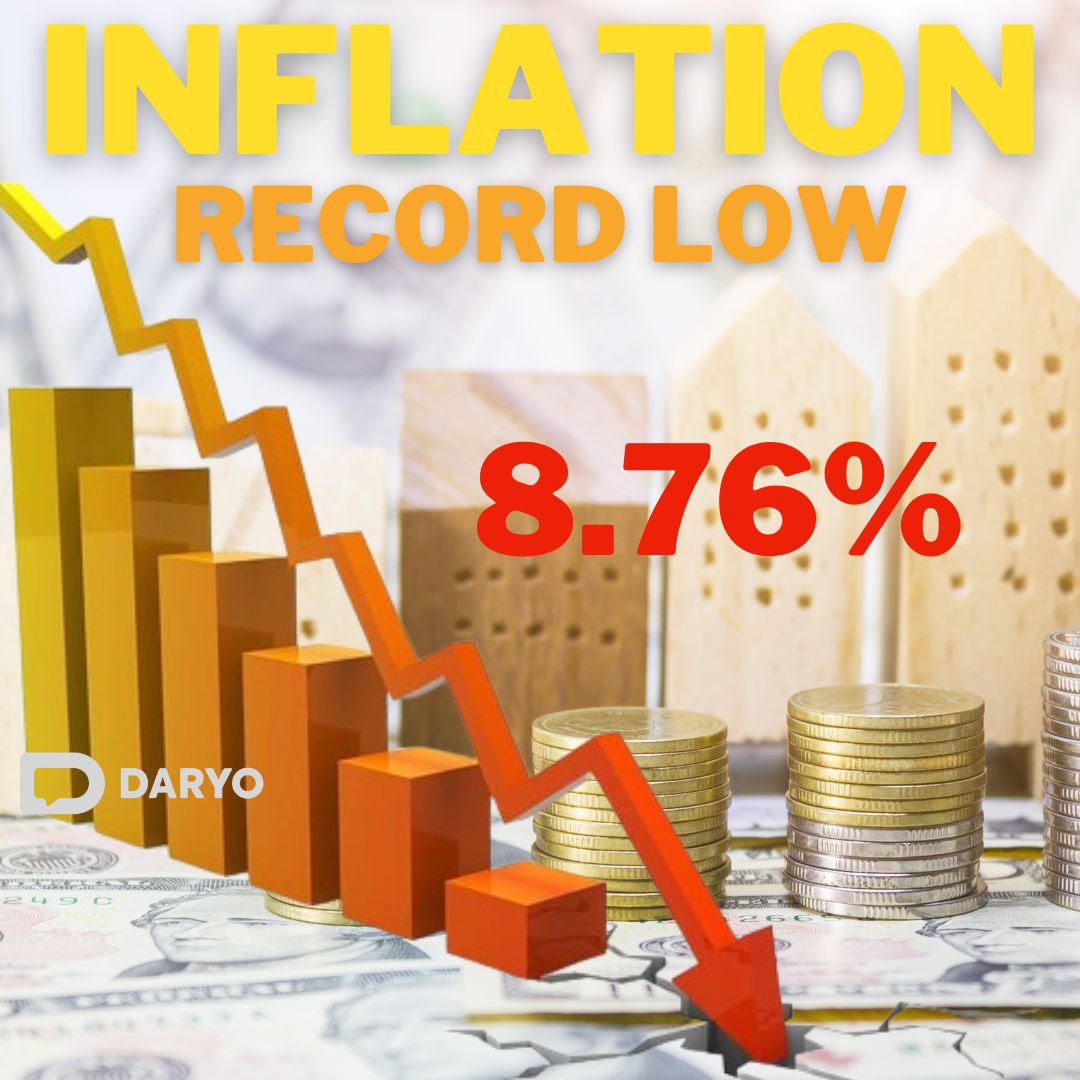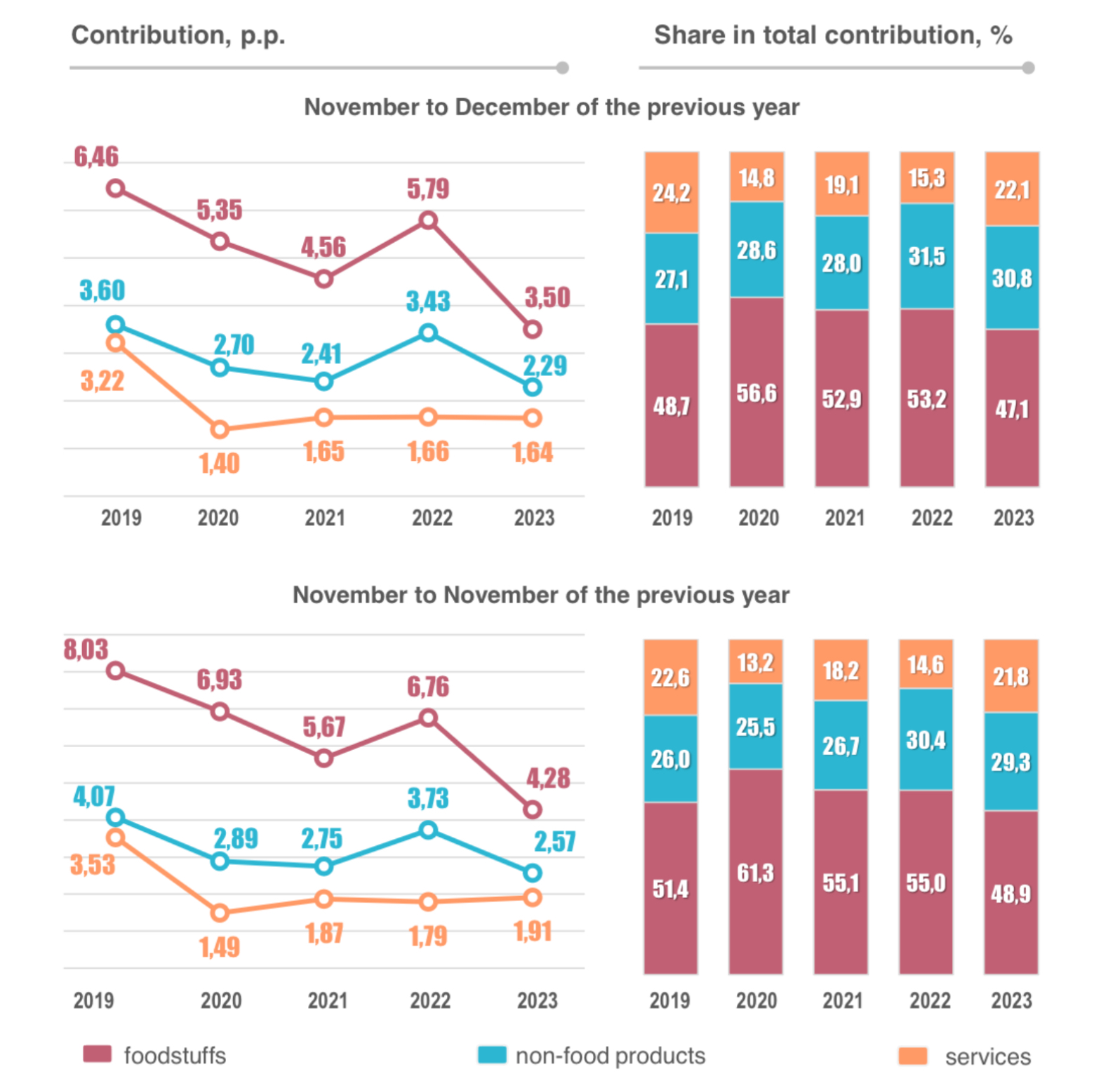In a comprehensive analysis of the economic growth rates of five Central Asian nations, including Uzbekistan, Kazakhstan, Kyrgyzstan, Turkmenistan, Tajikistan, and Afghanistan, data from 2015 to 2023 reveals encouraging trends. Most of the statistics are derived from public sources such as regional banking and economic departments, providing a transparent view of the economic landscape.

A notable highlight is Uzbekistan's achievement in keeping its inflation rate below 9%, marking seven years record low. As of the end of October 2023, Uzbekistan's inflation rate stood at 8.76%, and experts anticipate it to remain below the 9% threshold. This positive development reflects a broader regional trend, with Central Asia experiencing a favorable impact on inflation from 2022 to 2023.
The geopolitical situation globally and shifting economic interests contribute to the region's optimistic outlook, with expectations of ending the year on a high note and a positive start to the next. Notably, the region's focus on the green economic corridor has attracted significant attention and investment from the European Union, promising a sustainable future.
Strategic alliances with Commonwealth of Independent States (CIS) countries are also driving economic growth. The completion of railway connections connecting Russia and China to Central Asian countries is poised to boost economic development, create jobs, and lower the cost of goods, thereby positively influencing inflation rates.
Uzbekistan, like many nations, contends with various factors influencing inflation, including demand-pull inflation, cost-pull inflation, monetary policy, exchange rates, and global dynamics. Notably, Uzbekistan was among the first countries in Central Asia to implement a new method of measuring the Consumer Price Index (CPI), providing a more accurate reflection of inflationary pressures.
October 2023 witnessed a decline in the prices of essential commodities, with meat (0.2%), butter (0.5%), rice (0.6%), flour (0.8%), potatoes ((3.0%), onions (7.1%), and carrots (25.7%) experiencing notable reductions. However, November brought a moderate increase in food prices by 1.3%, non-food products by 0.7%, and services by 1.5%. Annual inflation rates for food and non-food products reached 10.1% and 7.5%, respectively, while services stood at 8.3%.
The overall inflation rate for 2023 was reported at 7.4%, showcasing a significant improvement compared to the same period in 2022, which recorded a figure of 10.9%. Monthly fluctuations were observed throughout the year, with October reporting a 1% inflation rate, September at 1.2%, August at 0.5%, and both June and July experiencing deflation at 0.29% and 0.16%, respectively.

Uzbekistan's success in controlling inflation in 2023 may be attributed to strategic collaborations and energy initiatives. The collaboration with Saudi Arabia and ACWA Power on Green Hydrogen and Wind power projects, coupled with a partnership with China and Saudi Arabia, has brought attention to the country's commitment to sustainable energy. Additionally, Russia's agreement to supply gas to Uzbekistan through Kazakhstan further strengthens economic stability.
As per the consumer price index report for November 2023 released by the Statistics Agency under the President of Uzbekistan, the CPI has shown a decreasing trend since 2019, except for 2022. Figures for the years 2019, 2020, and 2021 were reported at 113.28%, 109.45%, and 108.62%, respectively. Although 2022 witnessed a slight uptick to 110.88%, the CPI is expected to fall to 107.43% by December 2023, reinforcing Uzbekistan's positive economic trajectory.
“Data taken from public sources such as regional banking and economic departments, providing a transparent view of the economic landscape.”
Follow Daryo's official Instagram and Twitter pages to keep current on world news.
Comments (0)